The Apple Magic Keyboard for iPad Pro, with its floating stand, magnetic attachment, ease of use, and exceptionally smooth keyboard make it a standout option for anyone seeking the absolute best typing experience. However, it still has some quirks and the $299 price tag is probably too much for what essentially is a proprietary keyboard.
Apple has a reputation for creating sleek products with one major drawback: the price tag. From $699 for a set of caster wheels to $19 for a microfiber cloth, Apple accessories have often been seen as overpriced. Enter the Apple Magic Keyboard for iPad Pro, a $299 accessory that raises the question: is it worth the investment for a tablet keyboard?
While it certainly has its merits, the Magic Keyboard leaves much to be desired when considering the overall value. For the price of this keyboard, you could purchase the Realforce R3 and save 50 dollars. The Realforce R3 features electrocapacitive switches (one of the most exotic), 108 keys (versus the Magic Keyboard’s 64), and Bluetooth connectivity (for use with devices other than an Apple tablet). It’s the Bentley of keyboards with a longevity to match. So why spend $299 on a keyboard that might be obsolete in a few years?
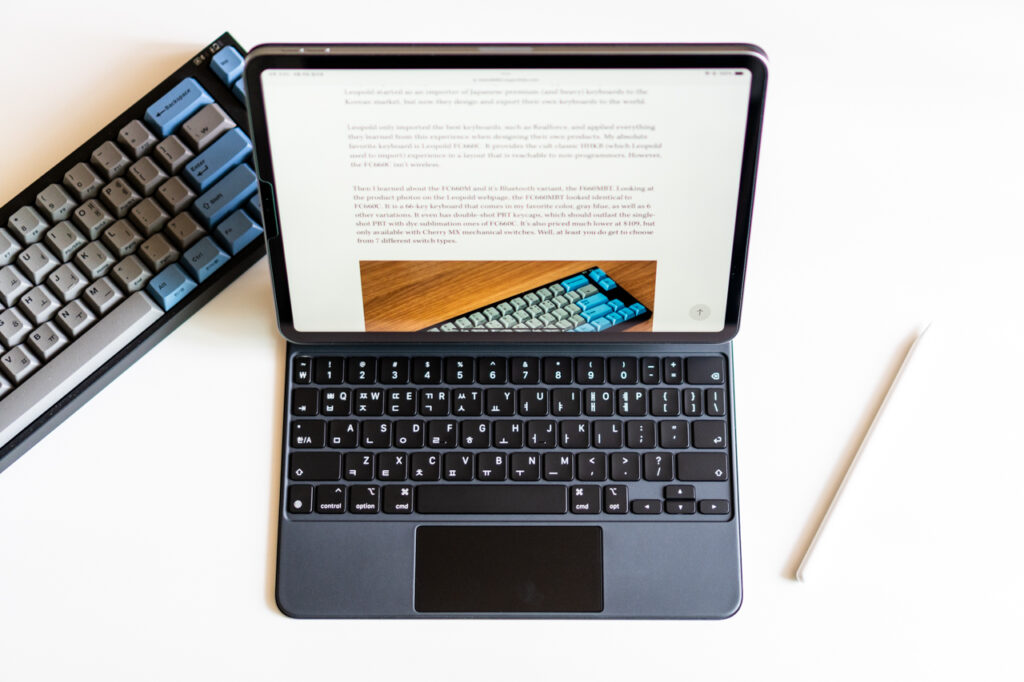
| THE GOOD | THE BAD |
| – Exceptional typing experience – Innovative floating display – Effortless magnetic connection | – Extremely expensive – No protection for the iPad – Apple Pencil is not secured – USB-C port only supports charging |
Note: This review is based on the pre-M4 11-inch model.
A Keyboard-Stand Hybrid
One of the Magic Keyboard’s key advantages over general keyboards like the Realforce is that it doubles as a tablet stand. But this isn’t just any stand—it’s Apple’s signature blend of form and function. The iPad Pro attaches to the keyboard magnetically, and the connection is quick and seamless. There’s no need for wires or even Bluetooth pairing; just attach the iPad Pro and start typing. This attach-and-type design is as effortless as it gets.
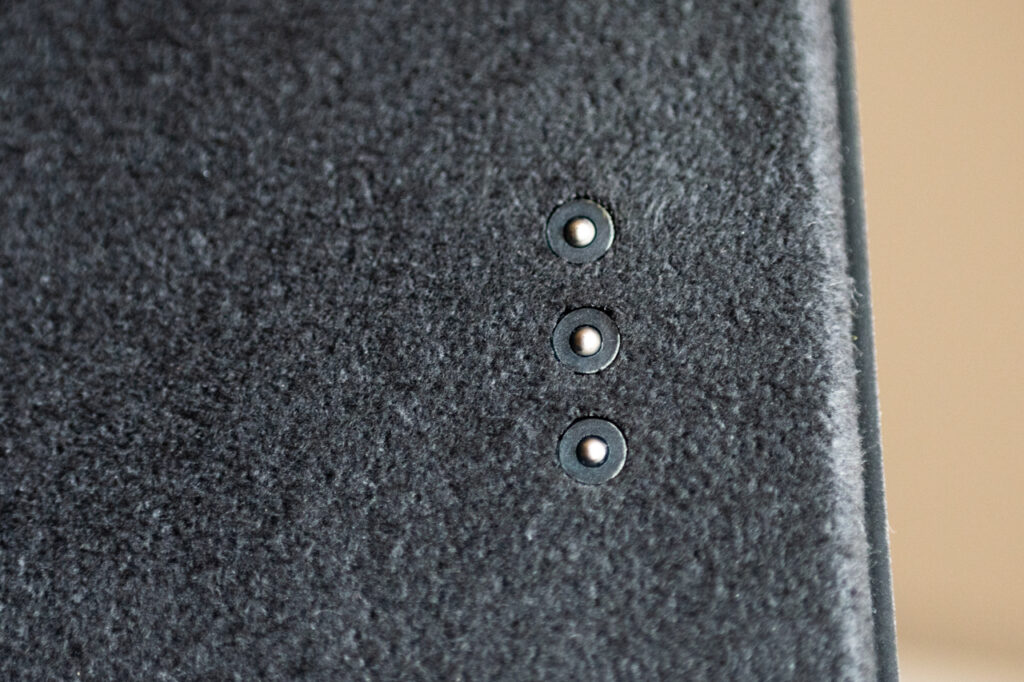
The highlight of this design is the floating display. The iPad hovers about 3 centimeters above the base, creating a more ergonomic viewing angle. This simple yet effective touch elevates the iPad Pro’s usability, making it feel less like a tablet propped up on a flat surface. The magnetic attachment, combined with the viewing angle, is one of the most praised features of the Magic Keyboard.

The Best Keyboard Apple Ever Made
Apple’s history with keyboards has been a mixed bag. In the 90s, their standard keyboards featured ALPS switches, renowned for their tactile feedback. Later, Apple switched their standard keyboard to a lighter, membrane-based ones with the introduction of iMac, which, while offering one of the better membrane typing experiences, lacked the satisfaction of mechanical keyboards. The subsequent shift towards thinner, low-profile designs only compounded this issue. However, with the Magic Keyboard for iPad Pro, Apple appears to have finally reversed course.
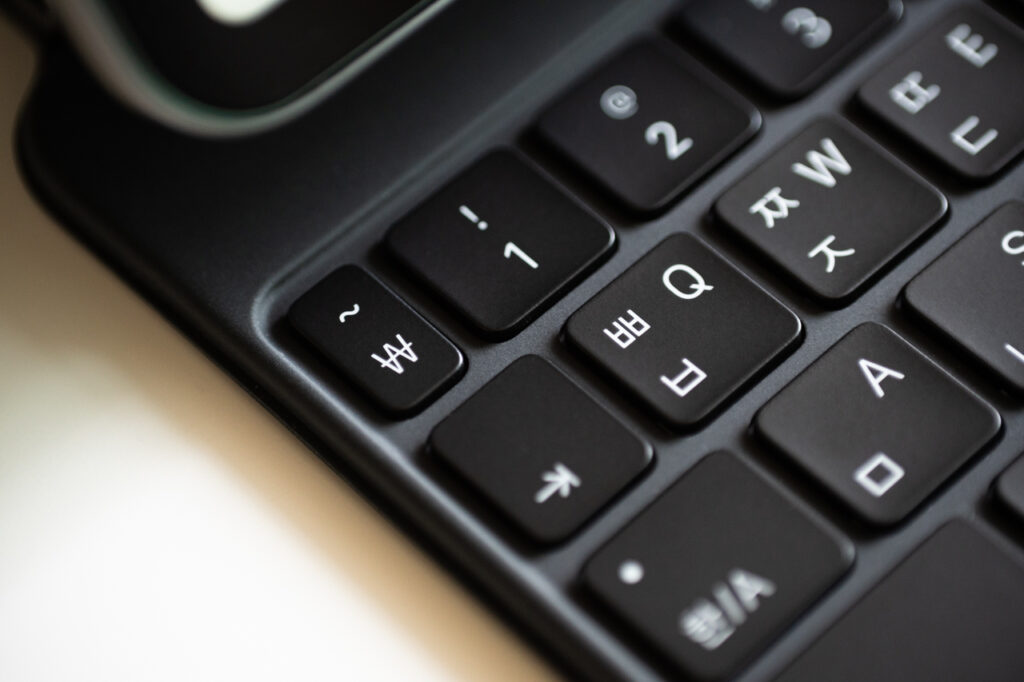
The keys on the Apple Magic Keyboard for iPad Pro may look identical to other current-generation Apple keyboards, but the typing experience is vastly superior. They feel softer and smoother, with just the right balance of resistance and tactility, delivering the best typing experience I’ve ever had on an Apple product. It’s noticeably better than both the current MacBook Pro keyboard and the desktop Magic Keyboard. While the mechanism differs, I actually find typing on the Magic Keyboard for iPad Pro more enjoyable than on the Realforce R3 or other top-tier mechanical keyboards.
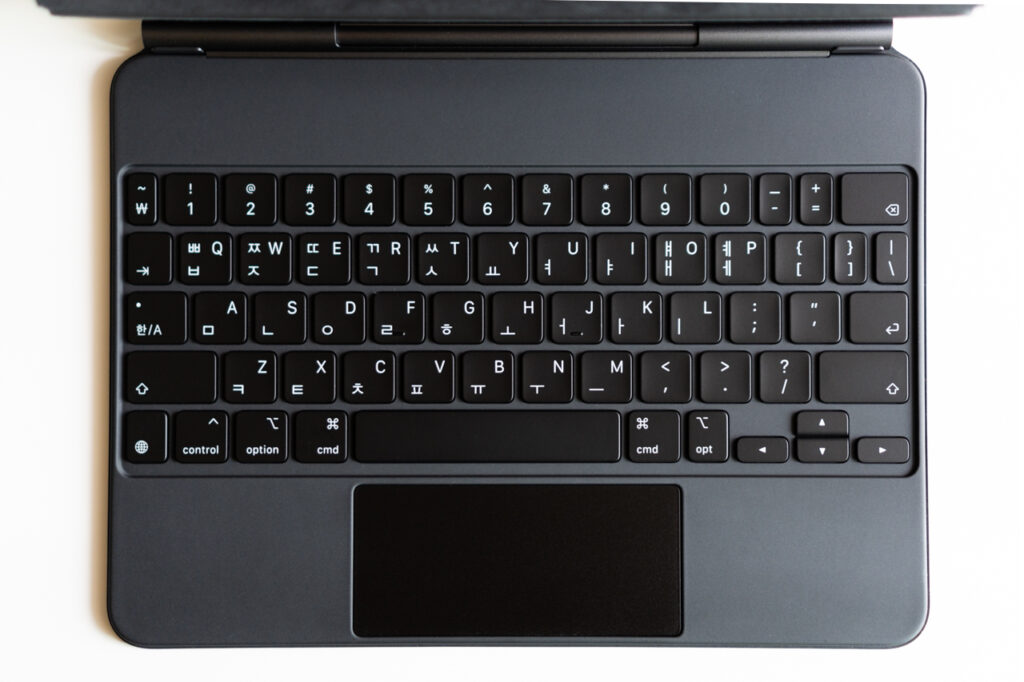
Where It Falls Short
However, for $299, the Apple Magic Keyboard for iPad Proshould offer more than just a great typing experience. Its biggest drawback is the lack of protection—only the display and the back are shielded from bumps and scratches. This issue is even more pronounced in portrait mode, where the iPad must be detached from the keyboard, leaving it completely unprotected. Additionally, the Magic Keyboard is heavy, adding significant bulk to the otherwise portable iPad Pro. To make matters worse, its top-heavy design means that when used on your lap, there’s a real risk of the iPad Pro tipping over backward.
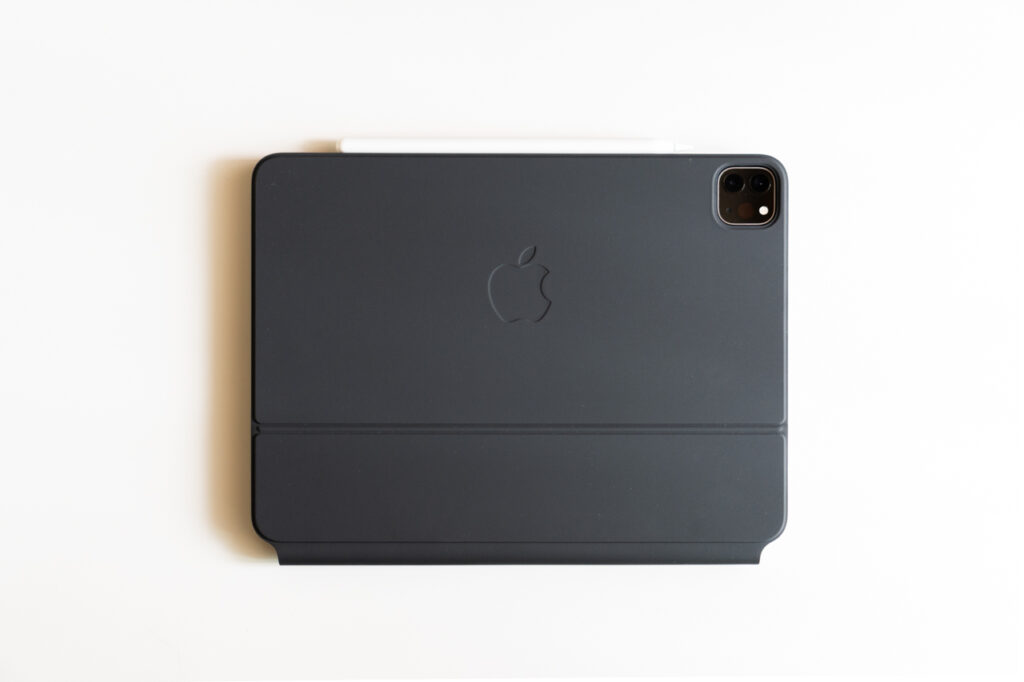
The USB-C port on the Magic Keyboard is a welcome addition, but it only supports charging. If you’re looking for expanded connectivity options, you’ll still need to rely on a separate hub connected to the iPad’s built-in USB-C port. Despite the keyboard’s portability, the Apple Pencil remains unsecured, increasing the risk of losing it during travel.
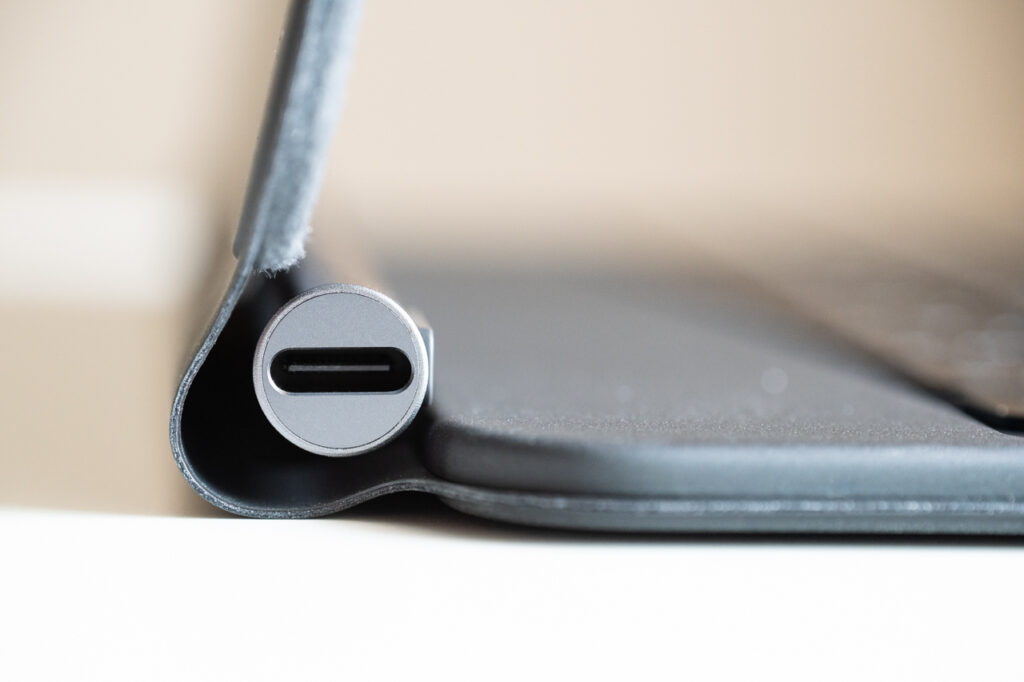
Cheaper Knock-offs: Are They Worth Considering?
There are plenty of third-party alternatives that mimic the Magic Keyboard’s floating design at a fraction of the price. While they lack Apple’s proprietary smart connector and opt for Bluetooth instead, they often offer solid battery life and fast, reliable connections. The real trade-off comes in the typing experience. The Magic Keyboard is unmatched in its smoothness and tactile feedback, and once you’ve used it, it’s hard to go back to a standard Bluetooth keyboard. That said, if typing feel isn’t your top priority, these alternatives are worthy contenders for a more budget-friendly setup.

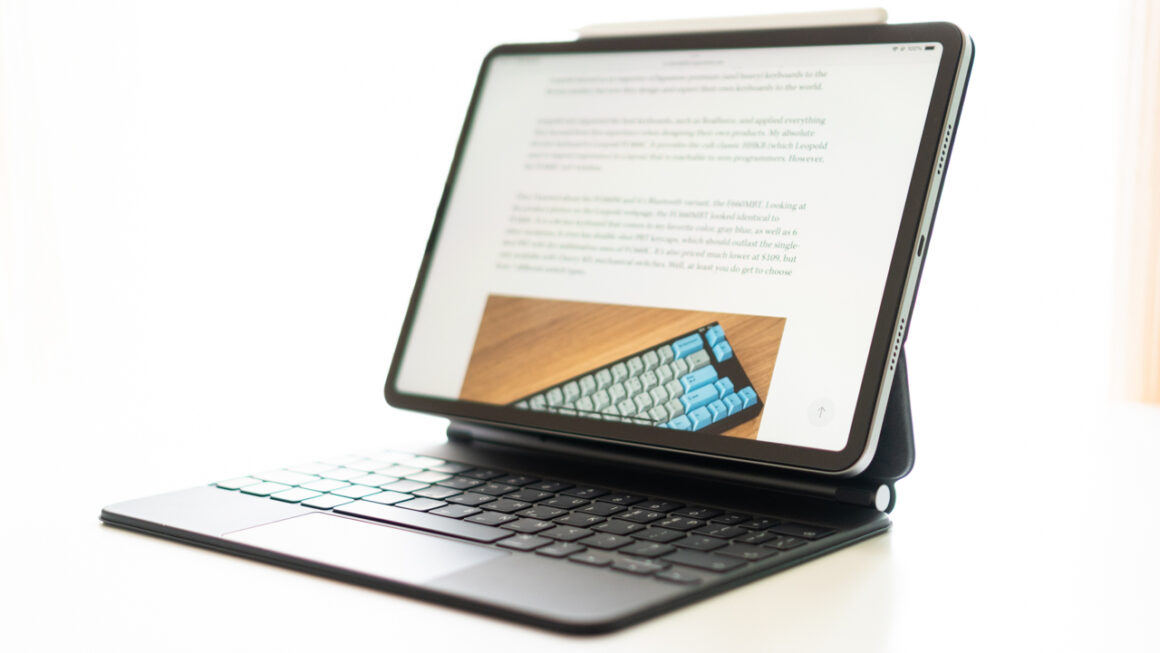


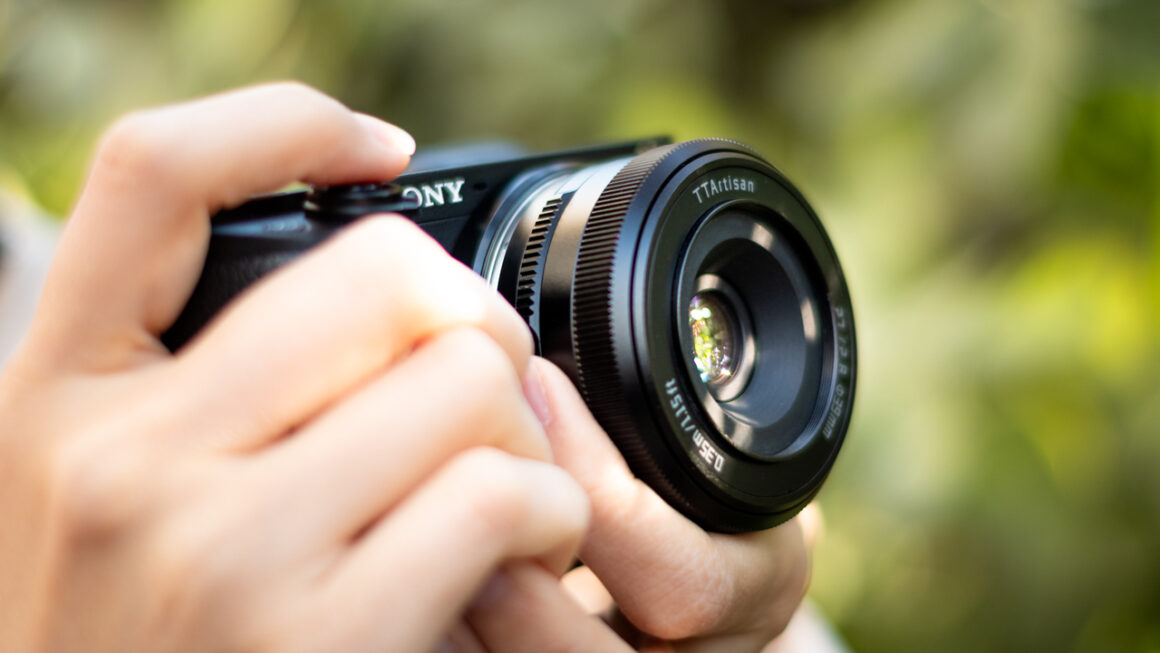
One thought on “Apple Magic Keyboard for iPad Pro Review – Amazing Experience, Amazing Price Tag”